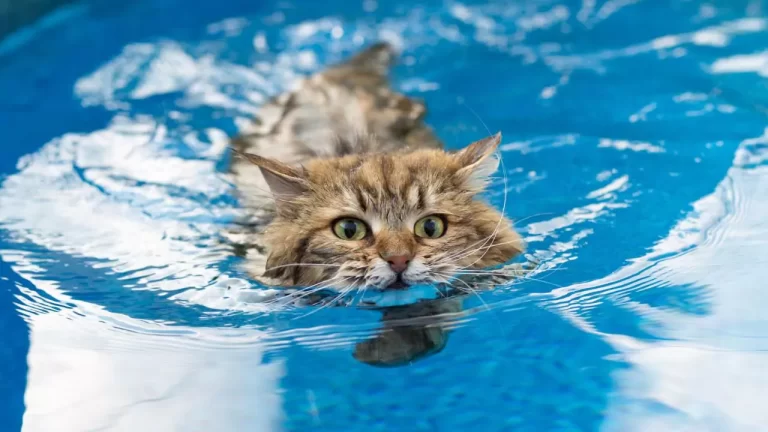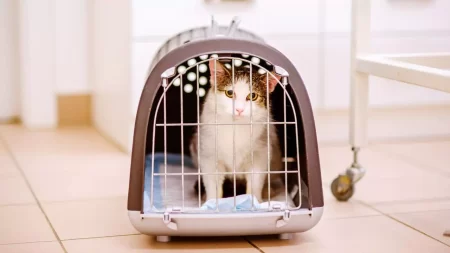Cats can hold their breath underwater for about 2-5 minutes, driven by a reflex action that aids in their survival. This innate ability allows them to swim to the surface if needed. While not all cats enjoy the water, they possess a natural instinct to swim, ensuring they stay afloat and can swiftly paddle to safety if accidentally submerged.
Can Cats Hold Their Breath Underwater?
Cats have a survival reflex called the mammalian diving reflex that prevents them from drowning if they accidentally fall into the water. This reflex allows cats to hold their breath underwater for about 2–5 minutes, which is enough time for them to swim to the surface.
Cats are natural swimmers and have a natural instinct to float and swim to the nearest exit if they fall into the water. If your cat appears to be behaving normally after being underwater, your veterinarian may only want to keep them under 24-hour observation.
Drowning or Near Drowning in Cats
Drowning or near drowning is a serious risk for cats that are exposed to water, especially if they are not used to it or if they are forced into it. Drowning occurs when a cat inhales water into its lungs, which prevents oxygen from reaching the blood and vital organs. Near drowning occurs when a cat survives drowning but suffers from complications such as hypothermia, shock, or infection.
The symptoms and causes of drowning or near drowning in cats may vary depending on the circumstances, but some common signs include:
- Coughing, choking, or gasping for air
- Lethargy, weakness, or unconsciousness
- Bluish or pale gums and tongue
- Rapid or irregular heartbeat or breathing
- Vomiting or diarrhea
- Seizures or convulsions
Some of the possible causes of drowning or near drowning in cats include:
- Accidental falling into a pool, bathtub, sink, or other water source
- Intentional or unintentional submersion by a person or another animal
- Exposure to strong currents, waves, or tides in natural water bodies
- Ingestion of toxic substances or foreign objects that cause choking or vomiting
- Underlying medical conditions that affect the respiratory or cardiovascular system
Surviving for More Than 24 Hours
Although most cats will not survive drowning or near drowning for more than a few minutes, there have been some reported cases of cats that have survived for more than 24 hours underwater. These cases are extremely rare and often involve extraordinary circumstances, such as:
- Being trapped in an air pocket or bubble underwater
- Being frozen or preserved in ice or snow
- Being revived by artificial respiration or CPR
- Having a genetic mutation or adaptation that enhances their survival skills
However, these cases should not be taken as evidence that cats can hold their breath forever underwater, as they are more likely to be the result of luck, coincidence, or exaggeration. Even if a cat survives drowning or near drowning for more than 24 hours, it will likely suffer from severe and irreversible damage to its brain and other organs, which may affect its quality of life and lifespan.







